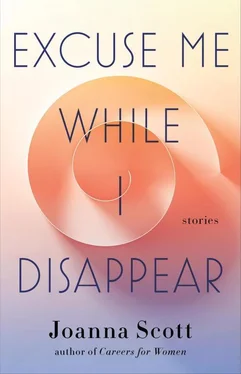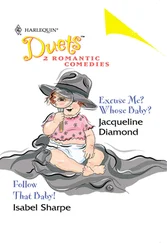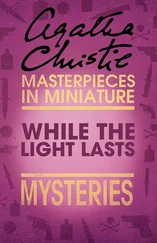C tried not to stare. There was something familiar about the stranger; a moment of reflection brought clear identification as C recognized his former neighbor, Victor Hugo.
Victor Hugo!
But that was impossible—Victor Hugo was dead. He had been dead for two years. C had been inconvenienced by the author’s huge funeral procession in front of the Panthéon.
Oh, but it was him, there was no denying. Victor Hugo, buried in a tomb he shared with Zola and Dumas, was sitting beside C on an iron bench in the Place des Vosges. C was overtaken by a clarity of mind that came in stark contrast to the confusion he’d experienced earlier. He could no longer find meaning in printed words, but he could see reality for what it was.
Hugo brought the back of his hand to his mouth and coughed again. He was old and haggard, but his poor health couldn’t stop him from scribbling on the paper. C felt a wave of pity for Hugo and wanted to reach out to him and tell him… what? What could he possibly say? He searched his memory for a passage from one of Hugo’s verses. Instead, a scene from the famous early novel about the hunchback came to mind. He remembered the passage almost word for word. He remembered how Djali, the little pet goat of La Esmeralda, gets his horns tangled in the folds of a noblewoman’s dress. C’s heart ached as he thought of all the ugly, contemptuous aristocrats mocking La Esmeralda, calling her a witch and ordering her to make the goat perform a feat of magic.
C wasn’t prone to sentimentality, but who could resist when the actors on the page were so vividly rendered? It occurred to him that he had judged Hugo’s work too harshly through the years. His inclination to find faults had dominated his reading experience. He realized that in his urge to be critical, he had missed the sheer, absorbing pleasure of Hugo’s books. Why, he had only to gaze at the sad, decrepit ghost beside him and realize that his stories would survive the eroding effects of time. Centuries would pass, and the books would continue to be read… though not by C, since C could no longer read. [4] C was probably wrong about the survival of Victor Hugo’s books. Predictive patterns based on data by Leonardo et al. (ibid.) indicate that by the year 2150, the majority of the human species will be illiterate.
Awareness filled him with horror. He would never again be able to read about La Esmeralda disentangling Djali’s horns from Madame Aloïse’s dress! He didn’t need a doctor to examine him to conclude with absolute certainty that his impairment was permanent. Printed words forever on would be impenetrable. If he wanted to read, he would have to be read to. It wasn’t the same when the words were spoken aloud. No, it wasn’t at all the same as digesting words visually and letting them transport him far from his armchair into a world illuminated by the light of his solitary consciousness. He had failed to fully savor the distinct satisfaction that comes with reading selflessly, propelled by selfless interest. All through his adult life, when his intellect was at its sharpest, he had positioned himself in competition with the books in his library. Now it was too late to start over. He had missed his chance.
Casting a sorrowful glance at C, Victor Hugo stood, fluffed out the tails of his coat, and walked away. C resisted calling out to him. He watched silently as the ghost dissolved in the mist. After Victor Hugo had disappeared entirely, C bravely fought against despair and invited a return of cold common sense. He told himself that he had imagined the whole encounter. There had been no ghost. He said it over and over to himself: There had been no ghost!
He would have been persuaded if he hadn’t seen, beside him on the bench, the piece of paper Victor Hugo had left behind. C was reluctant to pick it up. It would cause him too much distress, since he wouldn’t be able to read what Hugo had written. It would only be painful to peruse the scrawl of ink and fail to make sense of it. Hugo had probably written something brilliant; C would never know. He would leave the paper there. He would not allow himself to be tormented. But an unusual curiosity overtook him, and he gingerly lifted a corner of the paper.
He was able to perceive an entangled confection made of graphite. It took extra scrutiny in the dim light to realize he was looking not at words, but at a drawing. At first it seemed a busy patterned design, flowers tumbling behind a web, but on further consideration he came to see the circles, one dark, one hollow, that represented eyes, and a grim, skewed oval of a mouth lined with monstrous teeth, and wisps of a beard trailing like Medusa’s snakes. C finally recognized in the image the shape of a ghostly face, dissolving into a net of lines, as if printed on lace.
Victor Hugo had left behind a drawing. This was his gift to C, who from that day on could no longer read but could still see with perfect clarity. In the picture Victor Hugo had made in C’s presence, C saw the self-portrait of the very ghost with whom he had shared the bench. It did not take much effort to see that the illustration succeeded in capturing all the mysterious brilliance of the artist on a single sheet of paper. He was filled with admiration and at the same time he perceived in the image the full imaginative depths he’d missed in the previous years. It felt as if he were looking through ice at a spectacular underwater garden.
The effect of the drawing was so disorienting that in the days to come C would put it in a drawer, out of sight. Anyway, medical examinations and experimental treatments would keep him so busy he wouldn’t have time for anything else. He decided that rather than leave the drawing to languish in his desk, he would donate it to the city of Paris. When the Victor Hugo Museum was established on the Place des Vosges in 1902, it would be displayed among the author’s papers in a second-floor gallery. It remains there to this day. I know, for I have seen it myself.
My friend Alexander, a retired physics professor, could be found on any given day wandering among the stacks of the library, selecting books at random. He read law journals, outdated computer coding guides, chapbooks of poetry from the 1800s, forgotten novels, memoirs of kings and explorers and prostitutes, books about subjects as varied as Byzantine mosaics, Victorian prisons, clock repair, and Scottish epitaphs. His favorite place to while away the seasons was the library basement, tucked in at a wooden carrel thickly carved with obscenities and pronouncements of love.
During his prime years as a scientist, he concentrated his research on the aerodynamics of raindrops, though he never did more than confirm results from other physicists’ experiments. He had a lover who died of cancer in 1985, and he has been single ever since. For pets he hosted generations of goldfish. He used to play tennis regularly, but in his emeritus years he was content just to sit and read all day. When we met for our daily pint, he held forth on what he had read most recently, describing content in fascinating detail without ever seeming boorish.
I suppose it makes sense that a man who was such a passionate reader would one day decide to write a book himself. But though I pressed him on it, he refused to tell me what his book was going to be about, even whether it was to be based on fantasy or fact. Perhaps he intended to write a novel in verse, I joked, receiving in reply no more than a shrug. Was there one particular work that had lit the fuse of his ambition? He wouldn’t say. I pointed out that all his writing up to that point had been done for scientific journals and in collaboration with his fellow researchers; he’d never written anything on his own. It didn’t matter. Once he’d made up his mind he was fully dedicated to the notion.
Читать дальше












